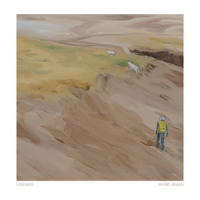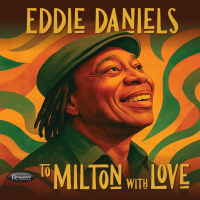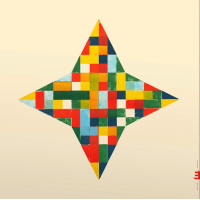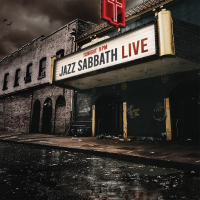Home » Jazz Articles » Album Review » Horace Silver Quintet: Live New York Revisited
Horace Silver Quintet: Live New York Revisited
Three of the five tunes (the seven-track album contains two versions apiece of "Que Pasa" and "African Queen") are from Silver's exalted Song For My Father (Blue Note, 1964) and are performed by the band which played them on that album: Silver, tenor saxophonist Joe Henderson, trumpeter Carmell Jones, bassist Teddy Smith and drummer Roger Humphries. "Song For My Father," "The Natives Are Restless Tonight" and "Que Pasa" never sounded finer.
The same can be said for "Señor Blues" from 6 Pieces Of Silver (Blue Note, 1957), the title track from Tokyo Blues (Blue Note, 1962), and "African Queen" from The Cape Verdean Blues (Blue Note, 1965). The two versions of "African Queen," datewise the last tracks to have been recorded (at the Half Note on separate nights in February 1966), have Woody Shaw in place of Jones and Larry Ridley in place of Smith. The rest of the personnel is unchanged.
Reviewers are not usually given to quoting the words of other writers, much less giving attribution to them when they do, but on occasion someone else makes an observation which is worth repeating verbatim. Brian Morton's sleeve note for Live New York Revisited is spot-on in its analysis of Silver's importance within the development of jazz. Here is Morton's general thesis: "Long before his death in 2014, Silver's reputation had become occluded, or tarnished with the notion that he was a relatively slight figure, more of an entertainer than an innovator." He goes on to discuss the various ways in which Silver was an innovatory figure, including this: "His habit of quoting other songs in his solos, often dismissed as a shallow, crowd-pleasing trick, is a forerunner of sampling culture and hip-hop. It's also an acknowledgement of [how] profoundly knowledgeable Silver was about the canon and its evolution. Here's a line of mine, he might say, and here's where it came from, but also here and here. His only mistake in this regard was to smile while he was playing.... a challenge to the really rather recent notion that jazz should be deadly serious and played with a pained rictus."
Joyous faces rather than pained rictuses should be the universal response to this album.
Track Listing
Song For My Father; African Queen; The Natives Are Restless Tonight; Que Pasa; African Queen; Tokyo Blues; Señor Blues.
Personnel
Horace Silver
pianoCarmell Jones
trumpetWoody Shaw
trumpetJoe Henderson
saxophoneTeddy Smith
bassLarry Ridley
bassRoger Humphries
drumsAdditional Instrumentation
Carmell Jones: trumpet (1, 3, 4, 6, 7); Woody Shaw: trumpet (2, 5); Joe Henderson: tenor saxophone; Horace Silver: piano; Teddy Smith: double bass (1, 3, 4, 6, 7); Larry Ridley: double bass (2, 5); Roger Humphries: drums.
Album information
Title: Live New York Revisited | Year Released: 2022 | Record Label: Ezz-thetics
Tags
PREVIOUS / NEXT
Support All About Jazz
 All About Jazz has been a pillar of jazz since 1995, championing it as an art form and, more importantly, supporting the musicians who make it. Our enduring commitment has made "AAJ" one of the most culturally important websites of its kind, read by hundreds of thousands of fans, musicians and industry figures every month.
All About Jazz has been a pillar of jazz since 1995, championing it as an art form and, more importantly, supporting the musicians who make it. Our enduring commitment has made "AAJ" one of the most culturally important websites of its kind, read by hundreds of thousands of fans, musicians and industry figures every month.

























